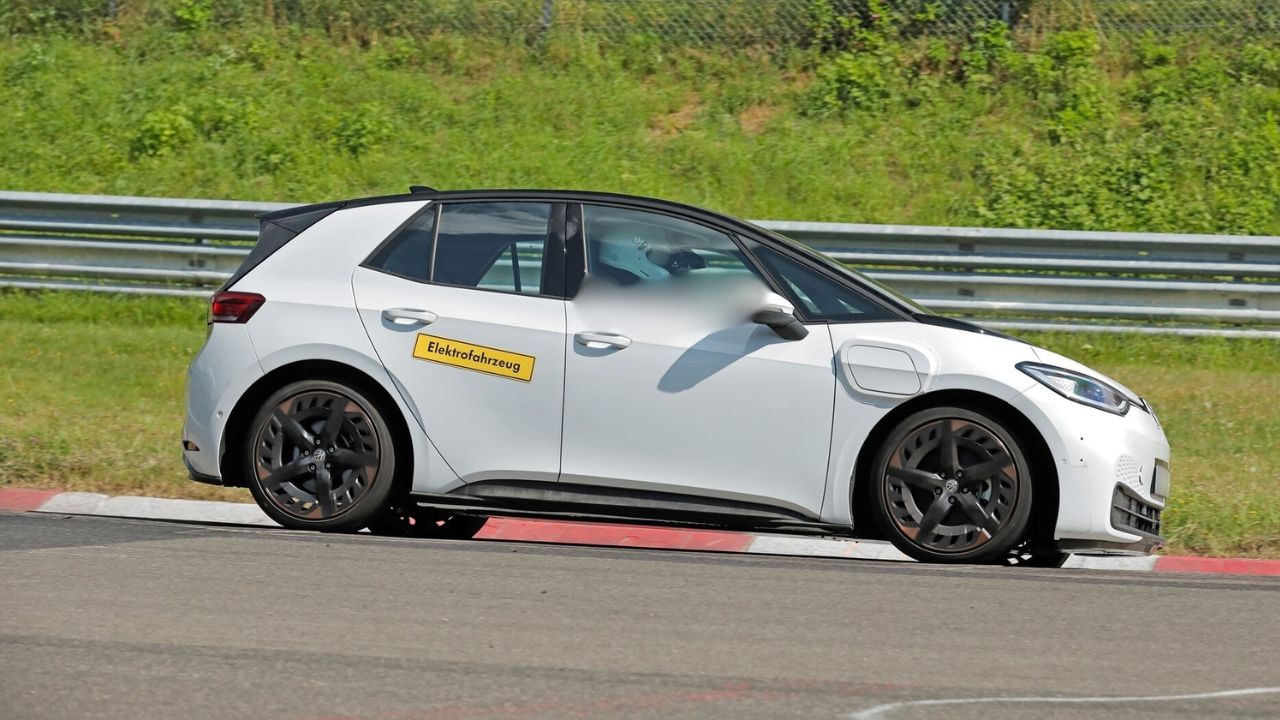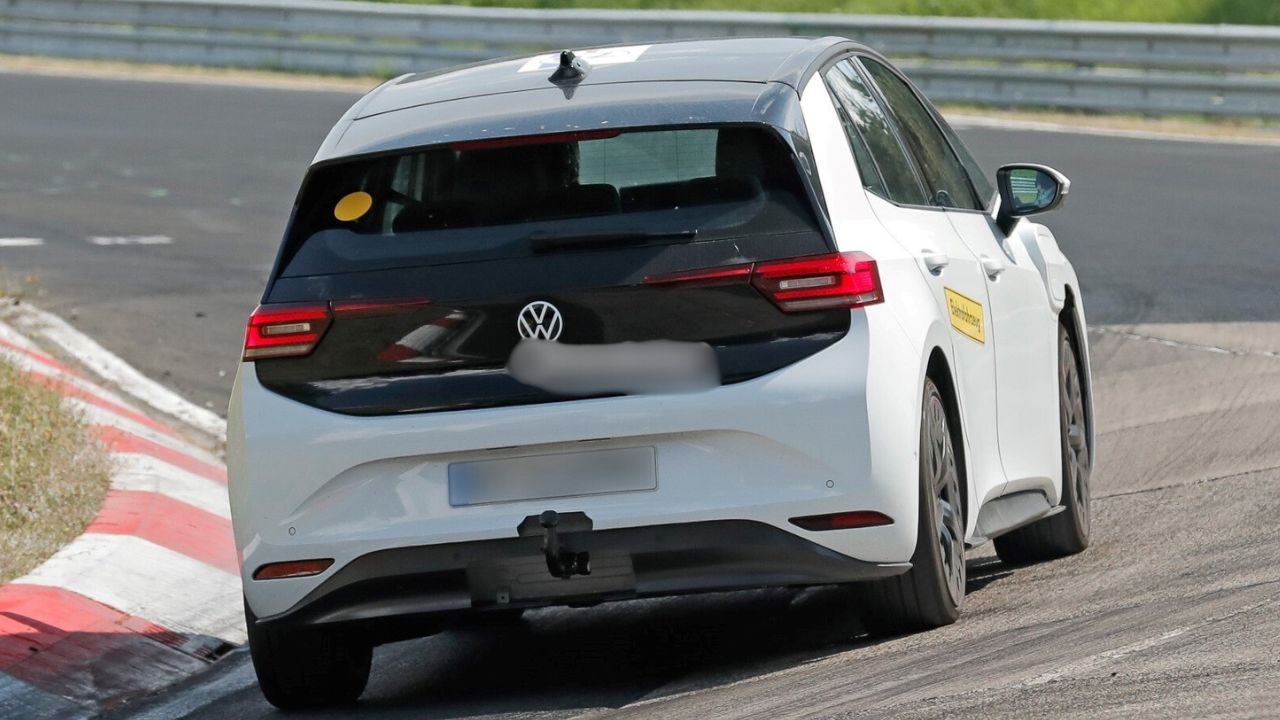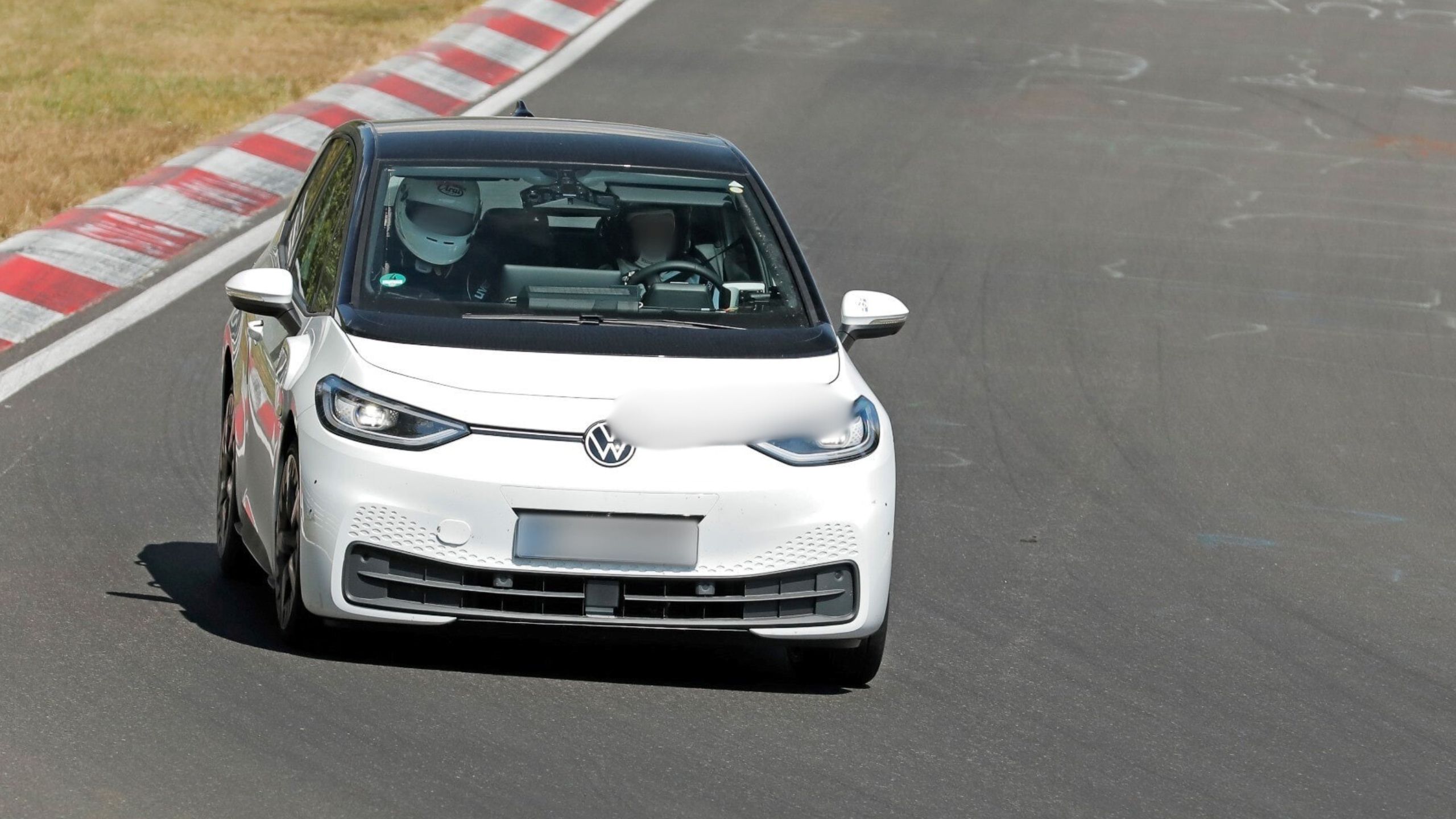Volkswagen is on the cusp of a significant shift in its compact hatchback lineup with the forthcoming ID.2 electric vehicle. shots of heavily camouflaged prototypes hint at a production model that could potentially succeed the iconic Polo. The ID.2all concept offered a tantalizing preview of what’s to come, presenting a spacious, front-wheel-drive platform capable of housing a substantial cargo area.
Under the hood, a projected 223-horsepower electric motor promises a dynamic driving experience that eclipses the performance of the gasoline-powered Polo GTI. The ID.2 is poised to be a cornerstone in Volkswagen’s electrification strategy, democratizing sustainable mobility by offering a compelling package of efficiency, practicality, and performance at an accessible price point.

This model could potentially redefine the compact hatchback segment, attracting a wider audience of electric vehicles. Volkswagen’s forthcoming ID.2 is poised to redefine the entry-level electric vehicle segment. Built on the innovative MEB Entry platform, this subcompact model promises a compelling blend of affordability and efficiency. With an estimated range of up to 450 kilometers under the WLTP cycle, the ID.2 demonstrates a significant stride in electric vehicle technology.
While its European market focus is evident due to factors such as vehicle size and eligibility for government incentives, ID.2’s potential impact on the broader electric world cannot be overlooked. Priced competitively at under 25,000 euros, Volkswagen is aiming to democratize electric mobility.
The ID.2’s design, featuring comically short rear doors and a unique charging port placement, sets it apart while hinting at its platform-sharing relationship with the larger ID.3 and ID.4. Moreover, the ID.2 serves as a cornerstone for Volkswagen’s electric vehicle expansion, as it is the first series-production model based on the MEB Entry platform.

This strategic move positions Volkswagen to capitalize on the growing demand for accessible electric vehicles. The ID.2’s sibling models, the Cupra Raval, and Skoda Epiq, offer further evidence of Volkswagen’s commitment to a diverse electric vehicle lineup. These models, sharing the same mechanical underpinnings as the ID.2, cater to different consumer preferences with distinct styling and features.
The Cupra Raval, for instance, emphasizes performance with a claimed 0-100 km/h time of 6.9 seconds, while the Skoda Epiq focuses on practicality and efficiency, including bidirectional charging capabilities. Together, these models create a compelling trio that collectively strengthens Volkswagen’s position in the electric vehicle market.

